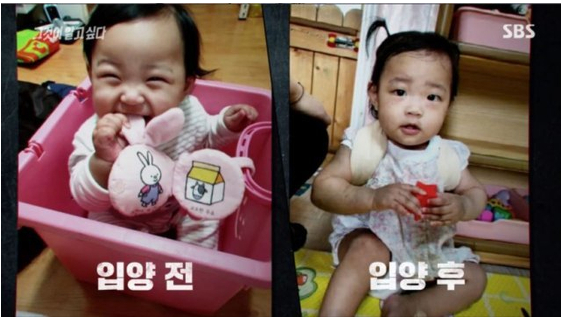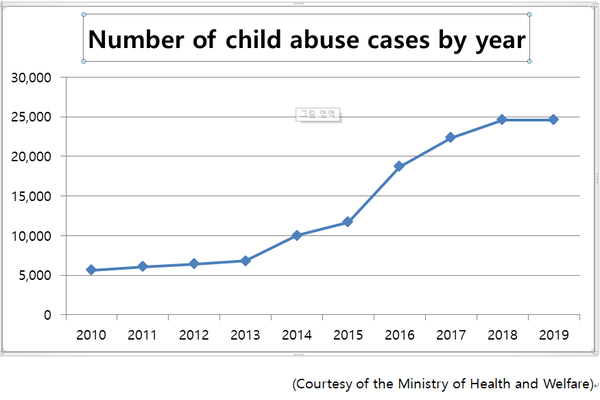Public anger over a child abuse case that resulted in the death of Jeong-in, an adopted 16-month-old toddler, is building up in Korea.
The outcry led to rare bipartisanship between the two rival political parties – the ruling Democratic Party of Korea and the main opposition, People Power Party – in passing legislation to strengthen child abuse prevention and the punishment of abusers on Friday.
The government has also decided to expand protection facilities and dispatch 664 officials in charge of child abuse to counties and districts to separate victimized children from their abusers, including their parents, from March. It will also establish a new department in charge of child abuse within the Korean National Police Agency.
The tragedy occurred in October but has drawn public attention since Jan. 2 when the SBS aired the episode centering on the death of Jeong-in in its investigative report show, "Unanswered Questions."

According to the SBS show, the adoptive parents brutally abused Jeong-in for months after adopting her in January last year. The public was further outraged when they learned that the police did nothing even though they received three separate reports related to the abuse.
A worker at a daycare center made the first report of suspected child abuse to Yangcheon Police Precinct in southwestern Seoul in May after finding bruises on Jeong-in's body. After a pedestrian found Jeong-in all alone inside a parked car in June, the police received a second report. In September, a pediatrician, who treated Jeong-in, reported to the police after finding child abuse signs.
However, the police closed all three cases, citing that they could find no evidence of child abuse, and did not separate the toddler from the couple.
Jeong-in died at a hospital emergency room on Oct. 13, after the medical staff's desperate cardio-pulmonary resuscitation (CPR) attempts failed to resuscitate her. During the procedures, Jeong-in suffered three cardiac arrests.
According to the physicians that treated her, Jeong-in was thinner and smaller than her peers, and her body was pale without blood and covered with bruises. Her stomach was also full of blood from ruptured organs, and she had multiple severe fractures to her skull, ribs, and collar bone.
Jeong-in's cause of death was abdominal damage caused by an external force.
Since the program aired, it has sparked outrage online, with celebrities joining the "#Sorry Jeong-in" campaign on social media to mourn the girl's death and filing petitions to call for stricter action against the adoptive parents. For example, BTS member Jimin posted "#Sorry Jeong-in" on Weverse, a fan club web page, prompting the boy bands fans to join the cause.
Doctors also expressed outrage on the death of Jeong-in and asked for the severest punishment for her adoptive parents.
"The whole country trembled in horror after SBS broadcasted its program dealing with Jeong-in's death," the Korea Medical Association (KMA) said. "As such, the suspects must be investigated and punished to the fullest extent."
The KMA also insisted that the police should also take responsibility for this incident's occurrence.
"The outrage should not stop at accusing the two adoptive parents," the doctors’ group said. "To prevent such a tragedy from recurring, the government must reorganize the system and constantly monitor to determine which parts and who are responsible."
KMA demanded that police officers involved in the case, such as the senior superintendent of the Yangcheon Police Station, and the Korean National Police Agency's commissioner-general, be held responsible for letting Jeong-in die despite receiving reports of the abuse on three different occasions.
Child abuse cases increasing annually
Despite the public's outrage over the death of Jeong-in, child abuse cases have shown few no signs of abating since 2010.
According to the Ministry of Health and Welfare's "Child abuse annual report 2019," there have been 41,389 cases of child abuse, resulting in 42 deaths, in 2019.

Among the fatalities, children aged 0 to 1, similar to Jeong-in's age, accounted for 45.2 percent, showing that the age group is the most vulnerable to death by abuse.
The number of abuses at home was the highest with 79.5 percent, followed by schools with 7.6 percent, daycare centers with 4.6 percent, and kindergarten with 0.5 percent.
Parents accounted for the highest share of abusers with 75.6 percent, followed by surrogate caregivers (16.6 percent) and relatives (4.4 percent).
The report showed that the rate of victims' detection increased only by 0.83 percentage point to 2.98 percent in 2019.
"Child abuse is an act that violates a child's basic right to enjoy a human life and threatens their survival," said Choi In-hea, a researcher at the Korean Educational Development Institute. "To prevent damage caused by child abuse, it is necessary to spread social awareness about the severity of child abuse, prevent the occurrence of child abuse, and protect and support the victimized children through policy efforts and attention."

